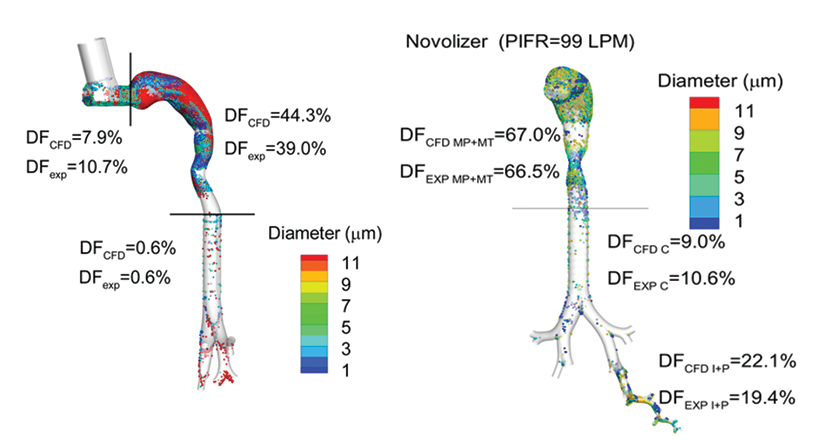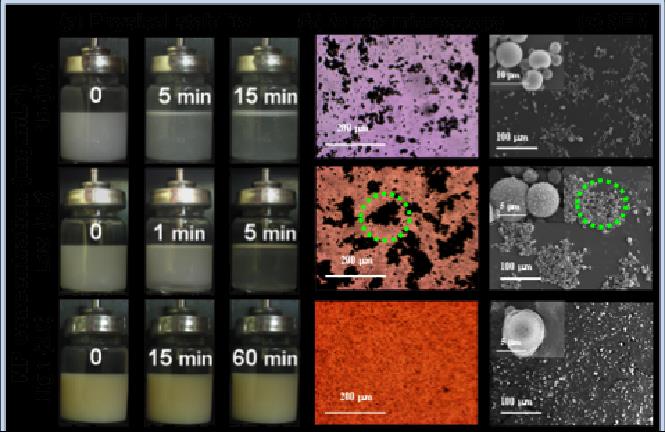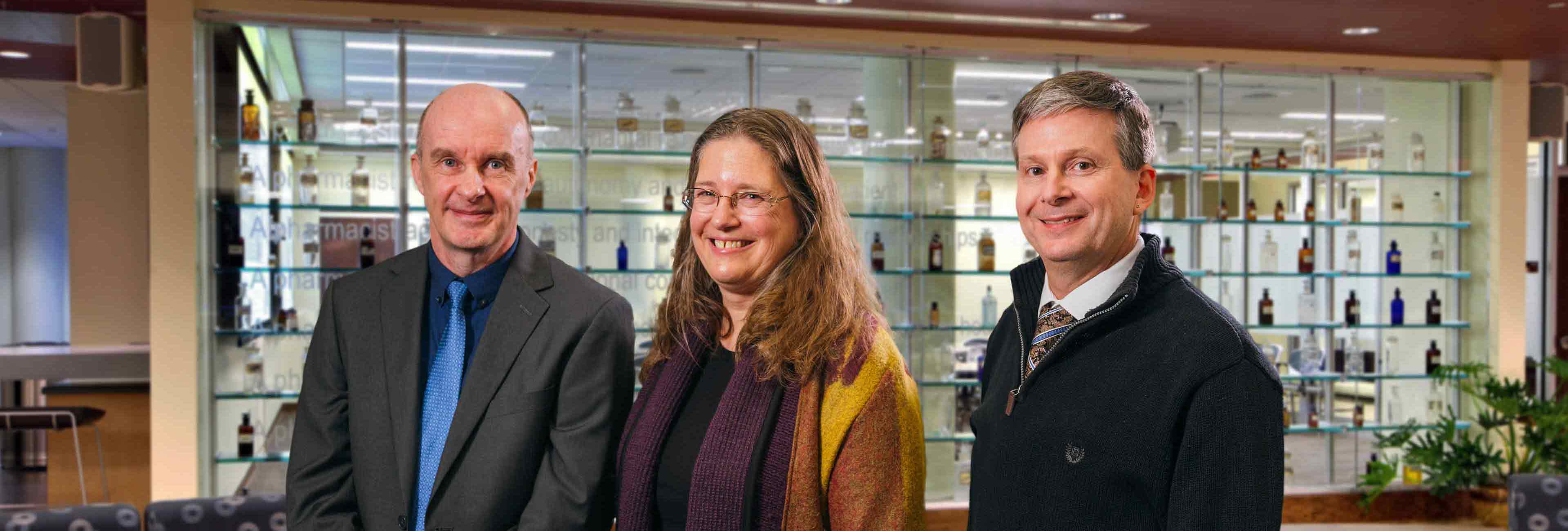Aerosol Drug Delivery
Founded by Dr. Peter Byron (Emeritus Professor) in 1988, the VCU Aerosol Research Group (ARG) conducts innovative research in the areas of drug delivery to the lung and nose.
Our work spans a wide variety of research areas including optimal design and evaluation of aerosol drug delivery formulations and devices; in vitro and in vivo characterization of inhaled drug products; clinical biopharmaceutics and pharmacology of novel drug molecules; regulatory sciences.
Importantly, ARG has a strong commitment to provide rigorous training to our undergraduate, professional and graduate students, together with post-doctoral scholars who pursue meritorious research under dedicated mentorship.
The group receives funding from the NIH, FDA and NSF, together with independent research foundations and the pharmaceutical industry.
Further information about the ARG Principle Investigators can found clicking on the links below.
Inhalation Pharmaceutical Engineering Research
Dr. Hindle, in collaboration with Dr. Worth Longest (Department of Mechanical Engineering), is combining computational fluid dynamics (CFD) with key in vitro characterization studies to develop novel aerosol inhaler concepts and investigate methods of testing pharmaceutical inhalers to better predict there in vivo delivery efficiency.
Some of our current funded projects are:
- Development of Synthetic Lung Surfactant Formulations and Delivery Devices for Treating Infants with RDS in Low Resource Environments (Bill and Melinda Gates Foundation)
- Preclinical development of a synthetic lung surfactant dry powder aerosol for hypoxemia or acute respiratory distress syndrome patients receiving different modes of ventilation support (NIH/NHLBI).
- Developing high efficiency dry powder inhalers for the delivery of tobramycin to pediatric cystic fibrosis patients (NIH/NICHD).
Other projects are focused on nasal drug delivery and characterizing deposition and absorption nasal spray products using realistic airway models.
Dr. Hindle is the Peter. R. Byron Distinguished Professor of Pharmaceutics.
Examples of our in vitro / in silico / in vivo correlations for metered dose inhalers (left panel) and dry powder inhalers (right panel)

Pulmonary Biopharmaceutics and Pharmacology
Dr. Sakagami's research focuses on pulmonary biopharmaceutics and pharmacology of inhaled drugs and new experimental therapeutics for local and systemic delivery. His group has developed and employed several unique in vivo and in vitro lung systems to characterize pulmonary disposition (absorption, metabolism and clearance) and assess therapeutic potentials (pharmacology) of various molecules for inhalation, including corticosteroids, antibiotics, peptides, proteins and antibodies in the treatment of asthma, emphysema, cystic fibrosis, and certain systemic diseases. A wide variety of biopharmaceutical, pharmacological, cellular and molecular biological expertise have been in place, alongside several disease cell and animal models. These studies will provide valuable information on understanding pulmonary biopharmaceutics and pharmacology for inhaled therapeutics, and seek development of new drug molecules for inhalation. Dr. Sakagami has active research collaborations with Drs. Umesh Desai (Medicinal Chemistry), Judith Voynow (Pediatrics) and Rebecca Heise (Biomedical Engineering), in addition to the ARG and Pharmaceutics faculty.
- Meet Dr. Masahiro Sakagami
- Learn about the Sakagami Laboratory
- Publication by the Sakagami Laboratory
Pulmonary Nanomedicine
Dr. da Rocha’s research is in the broad area of Nanomedicine and pulmonary drug delivery. Our long-range goal is to develop innovative drug and gene nanocarrier systems and their formulations for the regional delivery of therapeutics to and through epithelial barriers, with a focus on the lung epithelium. We seek to achieve our objective by engineering carriers with controlled morphology, size, and surface chemistry so as to control their interaction (and thus of the drug molecules) with the physiological environment. Such nanocarriers are of great relevance as they provide opportunities to achieve temporal and spatial controlled release, so as to target the payload to specific tissues/cell populations/ intracellular organelles, and at the same time to protect sensitive cargo. We study the interaction of the carriers at various biological interfaces, including in vitro and in vivo. We use a combined experimental and computational strategy to probe these interfaces at different length scales. Other systems of interest include the maternal-fetal interface, targeting bacterial biofilms and the bone tissue. Ours is a highly multidisciplinary team, involving visiting scholars, postdoctoral fellows, graduate and undergraduate students with different backgrounds form Molecular Biology, Polymer Science, Colloidal Physical Chemistry, Medical Sciences and Engineering.
- Meet Dr. Sandro da Rocha
- Learn about the da Rocha Laboratory
- Publication by the da Rocha Laboratory

